An Iranian-Canadian has been handed down a prison sentence for spying, the latest in a string of dual nationals to face jail terms.
The “spy” in question is Abdolrasoul Dorri Esfahani, who was a member of Iran’s nuclear negotiation team, which reached an agreement with the United States and five others countries in 2015.
The announcement comes at an interesting time, as US President Trump is expected to decide on whether the agreement will be re-certified imminently.
“A former member of the Iranian team of negotiators engaged in nuclear talks with world powers was sentenced to five years in prison after the appeals court upheld his conviction,” reported Tasnim news agency, a media outlet close to Revolutionary Guards, on October 4. “The suspect, described by the judiciary spokesman as a spy who had infiltrated into the nuclear team, was initially released on bail, but now has to serve a five-year prison term.”
Esfahani was a member of the Supervisory Board to Implement the Joint Comprehensive Plan of Action (JCPOA), the official name for the nuclear agreement between Iran and the group of countries known as the P5+1 — the United States, the United Kingdom, France, Russia and China, plus Germany.
“His detention, if confirmed, would make him the latest dual national to be arrested in Iran, part of what a United Nations panel has called an ‘emerging pattern’ since the atomic accord,” reported the Associated Press on October 5. In addition to reports that Esfahani holds a Canadian and Iranian passport, there is speculation that he is also a British citizen.
The accusations against Esfahan began in 2016. On June 20, 2016, the extreme hardliner website Raja News accused him of working with the UK and demanded that the Intelligence Ministry and the Central Bank provide clarification on some key questions about Esfahani and his role in negotiations, as well as about how competent he was for the job. “How could a person who owns a foreign passport and lacks a background in banking be given the sensitive position of working out the banking consequences of the JCPOA?” the report asked.
In September 2015, in an interview [Persian link] with the monthly Hesabdar (“Accountant”), the official publication of Iran’s Certified Public Accountants, Dorri Esfahani was described as “a banking and financial member of Iran’s nuclear negotiating team and one of the most knowledgeable people in dealing with financial and banking sanctions.”
On February 8, 2016, after the nuclear agreement was signed, President Rouhani presented Esfahani with a Service Medal 3rd Class and P50 Bahar Azadi gold coins as thanks for his services. Raja News reported that Esfahani sat on the board of directors of the Iranian private bank Saman, which was able to purchase “essential goods and medications” from the Toronto-based pharmaceutical company Universal Health and Pharma Private Ltd thanks to Esfahani’s so-called “relations with England.”
Accusations on Both Sides
But the pharmaceutical business was not the only area where Esfahani was allegedly active in bypassing sanctions. The US also accused him of helping the advancement of Iran’s nuclear program. In February 2015, a US Congressional report named Esfahani in connection with a German company, MCS Technologies, which had come under scrutiny for suspected dealings with Iran in connection with its nuclear program. The company produced high-pressure gas tanks and dual-use equipment that could be used in nuclear centrifuges and missile production. “A former sister company in Iran, Pars MCS, was designated by the Canadian government in 2010 as a possible contributor to ‘Iran’s proliferation-sensitive nuclear activities,” a Washington Post article revealed in April 2013. Another Iranian-Canadian, Eshagh Hajizadeh, and Dorri Esfahani had been partners at Pars MCS.
In March 2013, MCS's division in Germany was forced to close after it unsuccessfully tried to transport some of its equipment to Iran. At that point, Iranian Pars MCS put all of its shares up for auction. The tender was managed by a company affiliated with a religious endowment of the holy city of Qom run by the former Intelligence Minister Mohammad Mehdi Reyshahri.
Dorri Esfahani also represented Iran at the Iran-United States Claims Tribunal in the Hague for 10 years, and helped lodge Iran’s £400 million (US$530 million) claim against the United Kingdom for undelivered Chieftain tanks. The website Dana, which is associated with the semi-official government news agency Fars, reported that for 15 years, Esfahani worked as “the senior coordinator of international affairs at one of the biggest ministries in the Islamic Republic.”
According to Hamid Baeidinejad, another former member of the nuclear negotiating team and the current Iranian ambassador to the United Kingdom, Esfahani’s experience and record was the reason he was chosen as an advisor in the negotiations.
Hardliners Beg to Differ
But the hardliners saw it very differently. In addition to Raja News’ doubts over Esfahani’s passport and his suitability for the job, its journalist Javad Rezapour speculated that Valiollah Seif, the governor of Iran’s Central Bank, was behind the decision. The report mysteriously said “another source” had provided proof of Seif’s trust in Esfahani.
On June 28, 2016, Saman Bank issued a response to the Raja News report published on June 20. It stated that, effective July 22, 2015, Abdolrasoul Dorri Esfahani had resigned from the bank’s board of directors following recommendations from Iran’s Central Bank. The bank’s representative complained that Raja News’ description of Esfahani having “relations with England” was deliberately vague, inviting the interpretation that he was somehow “affiliated with England.” The response further described the statement as “unfair” to the president of the bank’s board of directors, Vali Zarabieh and his advisor, Dr. Manzoori.
In its response, Saman Bank was careful not to defend Dorri Esfahani in order to avoid trouble. In the winter of 2014, Dorri Esfahani had also been appointed as the bank’s representative at Saman Currency Exchange. He left the position in February 2017.
Besides accusations by Raja News, in September 2016, another hardliner, former MP Hamid Rasaei, wrote that Esfahani had been “responsible for an important committee of the negotiating team” and that he had worked as a representative of the Central Bank during negotiations — but at the same time had received “a monthly salary of 35 million tomans [over $10,000]” from UK and US entities. The website Nasim Online reported that Esfahani received this salary in exchange for “sensitive financial and economic information about the Islamic Republic.”
Another parliamentarian also had information to impart about Esfahani. “Before the revolution, Dorri Esfahani worked with the US Treasury,” announced Javad Karimi Ghoddousi, a representative for Mashhad,, on August 23, 2016. “After the revolution he was hired by the Iranian Defense Ministry to oversee the financial claims of Iran against the US.” According to Ghoddousi, the ministry’s officials eventually fired him, accusing him of underperforming, and Esfahani then moved to Canada.
Karimi Ghoddousi also said that Dorri Esfahani had accompanied Foreign Minister Mohammad Javad Zarif on his visit to Turkey on August 12, 2016 and that while he was on the plane, a warrant for his arrest was issued. “He did not get off the plane in Turkey and was returned to Iran,” Ghoddousi said. Iran’s foreign ministry categorically denied that Dorri Esfahani had accompanied Zarif on his trip but, on September 9, 2016, it was confirmed that Esfahani had been summoned and interrogated.
Working with “a Brother”
Pars News published rumors that Esfahani was working with “a brother” — a barely disguised reference to Hassan Rouhani’s brother Hossein Fereydoon, who was arrested on July 15, 2017.
But according to Dorri Esfahani’s own account, his involvement in nuclear negotiations goes back to late 2014. “A committee from the president’s office was formed under Mr. Nahavandian [Rouhani’s chief-of-staff],” he told a news website. “I was also invited to participate,” he said, adding that the Rouhani administration had decided to seek the help of banking and financial experts. “Mr. Seif [the governor of Iran’s Central Bank] asked me to help Iranian negotiators and I accepted willingly...In the final round I was at the service of Dr. Zarif and other friends and helped in financial and banking areas.” Media outlets published a photograph of Esfahani next to other members of the negotiating team following the Vienna negotiations in the summer of 2015.
After the nuclear agreement was signed, Esfahani was active as a member of the JCPOA’s “financial and banking committee” and worked as an economic advisor to the team. Cyrus Naseri, who also has a history in nuclear negotiations, accompanied him to one of a series of meetings about the JCPOA with Iran’s Investments Association. The meetings took place between April and October 2017.
Cyrus Naseri is the brother-in-law of Majid Takht Ravanchi, a senior member of Iran’s nuclear negotiations team. Naseri also played a role as a member of the negotiations team under President Mohammad Khatami back in the early 2000s, when Hassan Rouhani was chief negotiator. During the presidency of Mahmoud Ahmadinejad, Naseri was accused of bribery in an oil deal and was forced to leave Iran. Like Esfahani, Naseri returned to Iran after Rouhani was elected to the presidency. He actively supported the JCPOA.
But on June 11 2016, Nasim Online reported that authorities had issued a warrant for Naseri’s arrest, but that Naseri was out of the country. The message was clear: Cyrus Naseri should forget about returning to Iran. Naseri also faced accusations from former MP Alireza Zakani, who claimed in late 2015 that Cyrus Naseri and Rouhani’s brother Hossein Fereydoon had set up a group that met weekly to discuss how to divide up the financial spoils of the nuclear agreement.
The Spy Amongst Us
Throughout the years of multiple allegations against and rumors about Esfahani, the MP Karimi Ghoddousi has been most persistent in his accusations. “As an Iranian-British dual national,” said Ghoddousi, “he has been spying [against Iran] even when he was working for the Defense Ministry and was in charge of claims against the US [at the Iran-United States Claims Tribunal]. And recently it was revealed that as a member of our country’s nuclear negotiation team he passed secret information about the negotiations to the American and British spy agencies and for his services he received £7,500 (US$9,946) each month.”
In response to this accusation, Iran’s current ambassador to the United Kingdom Hamid Baeidinejad wrote that “the insistence of certain individuals and websites to prove that Mr. Dorri is a spy is — intentionally or not — more than anything else an insult to our security and intelligence agencies.”
But this comment did not satisfy those convinced of Esfahani’s guilt, and the parliament questioned the intelligence minister about it. In responding to questions by three members of the parliament, the intelligence minister said that according to his ministry’s experts, Esfahani had not been engaged in spying. But this expert opinion was ignored and the case remained open. In May 2017, Karimi Ghoddousi reported that Esfahani was on trial. “His confessions about what went on behind the scenes during the nuclear negotiations will prove shocking,” he said, and demanded that his confessions be made available to the public.
And on August 20, the MP Javad Abtahi responded to a statement issued by President Rouhani’s office that denied the accusation that the negotiating team had a spy in its midst. “Mr. [Mohammad] Nahavandian [who was then Rouhani’s chief-of-staff] must answer a question,” he said. “Who pays from the public treasury the money for Dorri Esfahani to travel from London to Tehran repeatedly?”
The string of events, accusations and denials are a clear reminder that the nuclear deal continues to be one of the most contentious issues among Iran’s opposing political camps — and across the region and the world. Anger and hostility over what it means for Iran, and for individuals’ political and financial gains, continue.
Recent machinations are all too familiar to anyone following the run-up to the deal, the signing of the agreement and its aftermath. But of course, the battles have a long history. Under Reformist President Mohammad Khatami, the divisive nature of the nuclear negotiations claimed victims as well. At the time, Hassan Rouhani was the chief nuclear negotiator. Members of the team included Hossein Mousavian, who was charged with espionage and spent some time in detention, and Rahman Ghahremanpour and Shahin Dadkhah, who were given long prison sentences for espionage.
In many ways, what is happening now is a repeat performance, but on a vaster and more damaging scale.











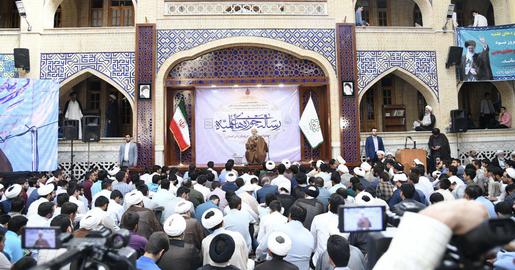


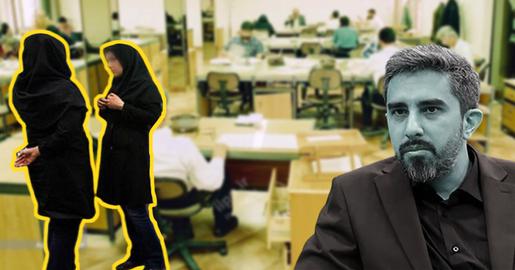


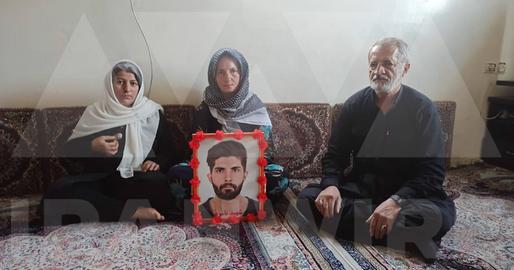



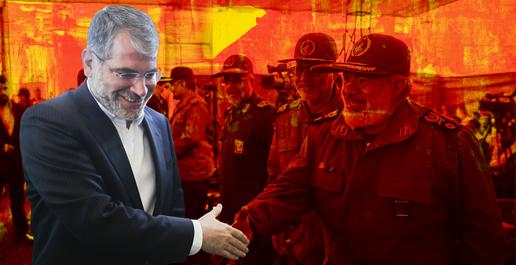
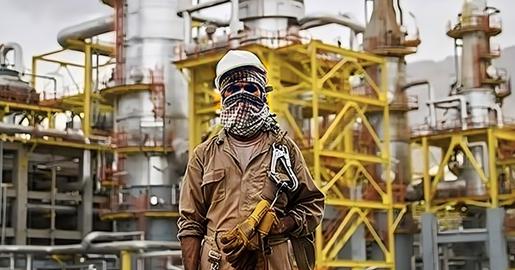
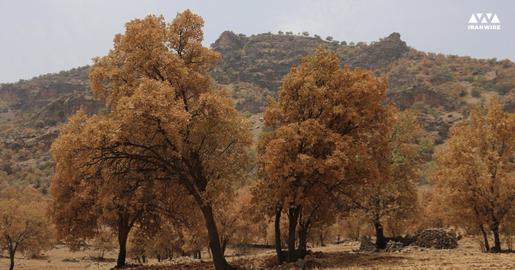
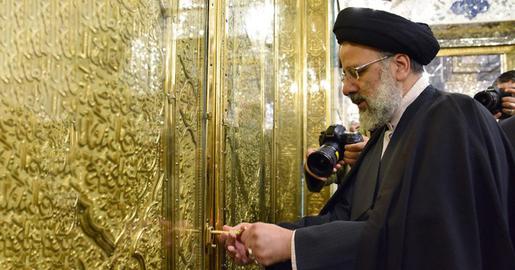

comments